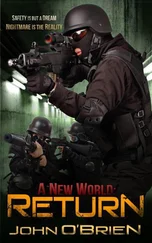John Dalmas - Return to Fanglith
Здесь есть возможность читать онлайн «John Dalmas - Return to Fanglith» весь текст электронной книги совершенно бесплатно (целиком полную версию без сокращений). В некоторых случаях можно слушать аудио, скачать через торрент в формате fb2 и присутствует краткое содержание. Жанр: Фэнтези, на английском языке. Описание произведения, (предисловие) а так же отзывы посетителей доступны на портале библиотеки ЛибКат.
- Название:Return to Fanglith
- Автор:
- Жанр:
- Год:неизвестен
- ISBN:нет данных
- Рейтинг книги:4 / 5. Голосов: 1
-
Избранное:Добавить в избранное
- Отзывы:
-
Ваша оценка:
- 80
- 1
- 2
- 3
- 4
- 5
Return to Fanglith: краткое содержание, описание и аннотация
Предлагаем к чтению аннотацию, описание, краткое содержание или предисловие (зависит от того, что написал сам автор книги «Return to Fanglith»). Если вы не нашли необходимую информацию о книге — напишите в комментариях, мы постараемся отыскать её.
Return to Fanglith — читать онлайн бесплатно полную книгу (весь текст) целиком
Ниже представлен текст книги, разбитый по страницам. Система сохранения места последней прочитанной страницы, позволяет с удобством читать онлайн бесплатно книгу «Return to Fanglith», без необходимости каждый раз заново искать на чём Вы остановились. Поставьте закладку, и сможете в любой момент перейти на страницу, на которой закончили чтение.
Интервал:
Закладка:
"What is your interest in him?" ben Abraham asked then. "Or in any Norman? You do not seem warlike."
I didn't try to think an answer, just let the words come. "My own land, Evdash, has been conquered by the evil Glondis Empire-an empire that could someday come even to Christendom and try to enslave it. I hope to build a kingdom here that is wise and just, and powerful, that can defeat Glondis when the time comes. It seems to me that the Normans could help, and Arno de Courmeron is the Norman I can best work with."
Ben Abraham's face had gone unreadable. He nodded. "There is something about you that is different," he said. "I have no idea what it is. You have a power that is not force, and perhaps you can do what you say. But I will tell you something that perhaps you do not realize.
"I have talked with more than a few Normans-even with the steward of Robert Guiscard, whom the Bishop of Rome now has anointed Duke of Sicily as well as Apulia. And I deal with many people from almost every part of the known world. I am always interested in people, and what they have to say, and my home and table are not unknown. So they talk to me-merchants, ship's captains, traveling nobles. And sometimes I travel, for trade. I once spent two weeks in the court of the Saracen Lord of Palermo; many wise men are his guests, and hold long discourse there. I have talked with the secretary of the Bishop of Rome, and shared wine with the Lombard mayor of Amalfi. I have dined with merchant princes in Byzantium, and discussed commerce with the steward of Philip the Fair, the Prankish king, in his castle at Paris.
"All of these have had much experience with Normans, and I would like to describe for you the impression I have gained from them. The Normans are more than adventurous: They have an extreme restlessness, and a recklessness that often leads them to victory, although sometimes it takes them to their own destruction. They have a thirst for power that seems beyond quenching. There is no people in the known world who exceeds them in their love of fighting-not even the bloody Vikings, from whom the Normans drew their founders and their name. They have a courage that is frequently foolhardy, and a craftiness that leads often into treacheries both outrageous and bloody.
"And I have heard it said that those who go to Italy are the worst of them all. Their overlord in Italy, Robert of Apulia, is even called Guiscard, 'the Cunning,' and wears the name with pride."
I wouldn't understand all of ben Abraham's words until I'd run them through the linguistics program aboard the scout, but I understood enough to make my stomach knot.
"You may wish to enlist the help of the Normans," ben Abraham went on, "but the Normans help mainly themselves. To whatever they can take."
I nodded, feeling his black eyes on me, remembering the Norman Baron, Roland de Falaise, his utter lack of honesty, his attempt to have me clubbed to death by trickery. Even Arno had tried treachery against me, twice. Though he'd also saved my life, not to mention helping us rescue Deneen from the political police and capture the Federation corvette. Which the Normans, with the recklessness ben Abraham had just mentioned, had then blown apart, along with thirty of their own knights.
Yet ben Abraham made the Normans seem even more dangerous than I remembered them, mainly by showing them to me as a culture, not as a few dozen warriors. And by letting me see them through someone's eyes besides my own.
But I had to start somewhere, and Arno seemed like a good somewhere.
"I thank you for your warning," I told ben Abraham. "I have experienced some of what you described. It is why I wish to find Arno; I know him well enough that I believe I can work through him." I hope, I added to myself.
"I would not dissuade you," ben Abraham said. "Only, make sure you know what you're dealing with. Your own ambitions are not less than any of theirs, and I sense in you a strength of your own that I suspect can be formidable, though not brutal. Yours is an ambition of a kind that dukes with armies have undertaken and failed with, but every kingdom was begun by someone, and often against great odds."
It was really embarrassing to hear him say it. It made me feel like a huge fraud-I was only Larn kel Deroop- but this was no time to correct his impression of me.
"Thank you," I said, and moved the conversation on to other things-mainly the geography, peoples, and princes of the Mediterranean. There wasn't any question that ben Abraham was the smartest man I'd met on Fanglith-the best informed and least given to statements that sounded like runaway imagination and superstition.
And a born teacher who'd obviously rather instruct a couple of young strangers like Tarel and me than attend to business. A couple of times his secretary looked in at us, as if he had questions that needed answering, but ben Abraham frowned him back from the door.
I recorded all of it. I'd feed it to the computer that night and receive it back through the learning program, the words analyzed and defined. I have a darned good memory, and good logic circuits of my own. But for linguistics analysis, the computer was parsecs ahead of me, and the learning program would help me remember it.
Finally it was lunchtime, and Tarel and I ate with ben Abraham as his guests. Then I arranged passage for myself to Reggio di Calabria, in Italy, on one of ben Abraham's ships, which was leaving in four days. Reggio was just across the Strait of Messina from the Sicilian port where Arno had taken his horse herd.
When I'd paid my fare, I had just one gold piece left, plus the silver I'd gotten when I sold my donkey that morning.
Ben Abraham walked us to the courtyard, and as we shook hands, I asked him one last question. "My lord," I said, "yesterday you told Carolus the stonecutter an untruth, to shield my own. Why?"
His face was serious when he answered. "I am a Jew," he said. "And in the lands of Christendom, any non-Christian is always in at least some small risk of his life for being what he is. It seemed to me that you might be in serious risk of yours unless I spoke for you."
Our eyes held for a moment before I thanked him for his courtesies and help. As Tarel and I walked away, it seemed to me that I was alive only through the risks, large and small, of strangers-certainly on Evdash, and perhaps now, here in Marseille. And by Father Drogo and Pierre the tanner in Normandy, as far as that was concerned-men who had no reason beyond their own ethics to have helped me.
TWELVE
When we left Isaac ben Abraham, there still were hours to wait before calling Deneen back down. It seemed to me we might as well spend it learning something, so Tarel and I walked down to the waterfront to see what we could see.
The ships weren't much, they looked even smaller up close than they had in large magnification from a few miles above. The ones we looked at had a mast, though on some of them it was lying in the bottom of the ship, or in a few cases, on the deck or the dock or the beach. Most of them weren't decked over, though; all they had as decks amounted to flooring in the bottom of the ship. Others were partially decked over, fore and aft, with the midships open, and a few were decked over from stem to stern.
We talked to some sailors about ships and the places they'd been-sailors who spoke Provengal, Their talk of places was a bit of this and that, and a lot of it sounded- umm, more or less imaginative. I got the impression that part of the time they were lying on purpose, as if they were trying to see how much we'd believe. We (mainly me-Tarel didn't say very much) also questioned them about the names of different ships' parts and gear. Mostly the men on different ships used the same terms, so I felt they were honest with us on that. I didn't have Evdashian equivalents for most of their terms, but I recorded brief descriptions of the parts in Evdashian-enough to serve as memory tags to go with the Provencal words.
Читать дальшеИнтервал:
Закладка:
Похожие книги на «Return to Fanglith»
Представляем Вашему вниманию похожие книги на «Return to Fanglith» списком для выбора. Мы отобрали схожую по названию и смыслу литературу в надежде предоставить читателям больше вариантов отыскать новые, интересные, ещё непрочитанные произведения.
Обсуждение, отзывы о книге «Return to Fanglith» и просто собственные мнения читателей. Оставьте ваши комментарии, напишите, что Вы думаете о произведении, его смысле или главных героях. Укажите что конкретно понравилось, а что нет, и почему Вы так считаете.







